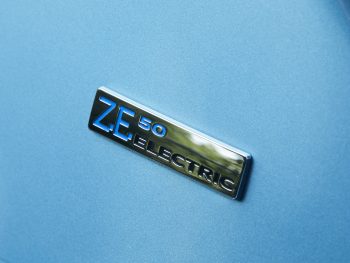UK electric vehicle supply likely to ‘dry up’ without new rules
Fleet and private driver demand for electric vehicles may be fast-rising but supply could “run out” without new UK-specific CO2 legislation.

T&E has warned that supplies of EVs and ULEVs could “dry up”
The warning comes from eco campaign group Transport & Environment (T&E), which says that EV sales have surged since 1 January, following the introduction of new emissions standards.
The EU’s 2021 ‘CAFE’ CO2 emissions targets have already started to be phased in this year and will apply to all registrations from 2021. They bring strict targets – aimed at tackling global warming – which are designed to be hard to meet, backed by punitive fines for non-compliance, leading manufacturers to prioritise sales of ULEVs, in particular zero-emission battery electric vehicles. But from 2021, UK sales of EVs will not help manufacturers achieve EU standards. And there’s still a question mark over what happens post-Brexit transition period, when the UK is expected to mirror the targets going forwards but based on domestic registrations alone; without the ability to offset figures against more advanced EV markets such as Norway, could we see carmakers pull out of the UK?
While the Government has announced it plans to phase out the sale of all new cars with engines by 2035 at the latest, and may bring the date forward as early as 2030, there’s concerns that the growing market will stall in the absence of British regulations equivalent to those in Europe.
Certainly, T&E is warning that the UK supply of electric cars is likely to “dry up” next year.
Greg Archer, UK director, said: “Electric car sales are booming thanks to emissions standards. Next year, one in every seven cars sold in Europe will be a plug-in. European manufacturers have EVs to sell, but from January they’ll have no incentive to sell them in the UK unless the Government requires them to do so.”
Carmakers must meet targets to reduce the average emissions of the cars they sell in Europe, or pay fines. The Government has so far failed to make parliamentary time available for equivalent new UK regulations to encourage sales here.
And it’s warning that these must be introduced by the end of October to be in place by January and maintain supplies of electric cars to the UK.
T&E analysis shows that the current draft regulation contains errors that will lead to about a fifth less EVs being sold in the UK than was likely if it had remained a part of the existing EU scheme. This is despite government claims that the rules are equivalent to those in the EU.
Archer added: “The electric car is becoming mainstream but we risk turning off the tap in Britain. Carmakers will prioritise EV sales in markets where laws and tax breaks encourage them most, but the UK’s proposed standards are too weak and maybe too late. Government needs to quickly introduce regulations equivalent to the EU’s in 2021, or demand for electric cars will outstrip available supply and drivers will be left with long waits to secure their new electric car which will be more expensive.”
But the Department for Transport (DfT) continues to say that legislation is due this year. Speaking to Fleet World at the start of 2020 – pre-pandemic – a spokesperson said further details of legislation were due.
And the DfT continues to say that legislation is on the way shortly as it refutes concerns over EV supply.
A spokesperson said: “The assertion that the UK is going to run out of electric vehicles is absurd.
“We’re committed to supporting the switch to greener transport, which is why we’ve invested £2.5bn as part of our drive to end the sale of new petrol and diesel cars and vans by 2035 or earlier.
“We will shortly be laying legislation to set CO2 targets, which will incentivise manufacturers to reduce emissions for new cars and vans.”












